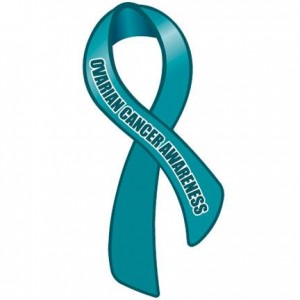Ovarian cancer is cancer that starts in the ovaries. The ovaries are the female reproductive organs that produce eggs.
Causes, incidence, and risk factors
Ovarian cancer is the fifth most common cancer among women, and it causes more deaths than any other type of female reproductive cancer.
The cause is unknown.
The risk for developing ovarian cancer appears to be affected by several factors. The more children a woman has and the earlier in life she gives birth, the lower her risk for ovarian cancer. Certain genes defects (BRCA1 and BRCA2) are responsible for a small number of ovarian cancer cases. Women with a personal history of breast cancer or a family history of breast or ovarian cancer have an increased risk for ovarian cancer.
Women who take estrogen replacement only (not with progesterone) for 5 years or more seem to have a higher risk of ovarian cancer. Birth control pills, however, decrease the risk of ovarian cancer.
Studies suggest that fertility drugs do not increase the risk for ovarian cancer.
 Older women are at highest risk for developing ovarian cancer. Most deaths from ovarian cancer occur in women age 55 and older.
Older women are at highest risk for developing ovarian cancer. Most deaths from ovarian cancer occur in women age 55 and older.
Symptoms
Ovarian cancer symptoms are often vague. Women and their doctors often blame the symptoms on other, more common conditions. By the time the cancer is diagnosed, the tumor has often spread beyond the ovaries.
You should see your doctor if you have the following symptoms on a daily basis for more than a few weeks:
- Bloating
- Difficulty eating or feeling full quickly
- Pelvic or abdominal pain
Other symptoms are also seen with ovarian cancer. However, these symptoms are also common in women who do not have cancer:
- Abnormal menstrual cycles
- Digestive symptoms:
- Constipation
- Increased gas
- Indigestion
- Lack of appetite
- Nausea and vomiting
- Sense of pelvic heaviness
- Swollen abdomen or belly
- Unexplained back pain that worsens over time
- Vaginal bleeding
- Vague lower abdominal discomfort
- Weight gain or loss
Other symptoms that can occur with this disease:
- Excessive hair growth
- Increased urinary frequency or urgency
Continue reading in order to find out more about Signs and tests and what type of treatment you should need.
 Thfire.com Everyday news that matters
Thfire.com Everyday news that matters 